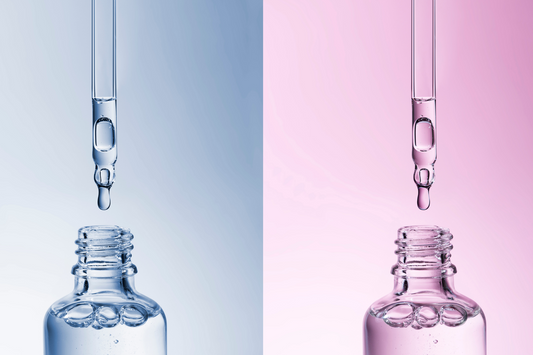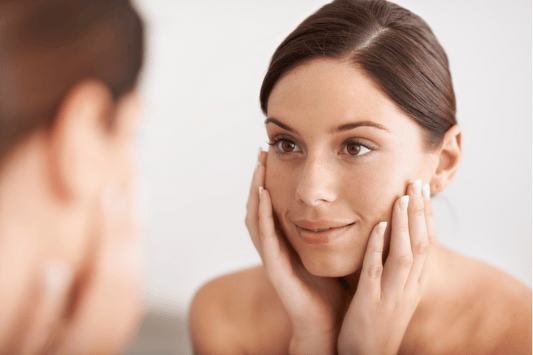When people think about skin concerns, especially in the anti-aging space, they generally think of fine lines and wrinkles. While fine lines and wrinkles are an absolutely important component, there are actually three (3) major categories of anti-aging skin concerns.
What Does Aging Look Like?

Hyperpigmentation
Hyperpigmentation occurs when melanin builds up within your skin. As seen in the black circle, age spots, also known as liver spots, are a type of hyperpigmentation that are commonly found on sun-exposed areas like the face and hands. They tend to be common in adults who are middle-aged and older, but they can also occur in younger people who are exposed to the sun frequently.
Knowing what helps with hyperpigmentation can be helpful for both prevention and treatment of dark spots.
Does sunscreen help with hyperpigmentation?
Yes, sunscreen is extremely important for protecting against the sun’s UV rays, which is one of the primary causes of hyperpigmentation.
Whether or not you currently have hyperpigmentation, it’s important to regularly use sunscreen to protect against sun damage. Sunscreen works best to prevent hyperpigmentation, but it’s also important for people with hyperpigmentation to use sunscreen to prevent new spots and to ensure the sun doesn’t exacerbate existing spots.
Does vitamin C help with hyperpigmentation?
Yes, vitamin C is clinically proven to help with uneven skin tone by inhibiting the overproduction of melanin. Additionally, vitamin C can protect your skin from the sun, and because it’s an antioxidant, it can also fight against free radicals that may damage your skin.
Fine Lines & Wrinkles
As seen in the blue circles, fine lines and wrinkles are lines or folds that appear on your skin, especially in areas like your hands and face. There are many causes of wrinkles including sun damage, smoking, and natural aging.
Does retinol help with fine lines & wrinkles?
Yes, retinoids like retinol can help with the appearance of fine lines and wrinkles. Retinol is a derivative of Vitamin A that increases skin cell turnover and unclogs pores. While retinol is famous for its benefits for acne and wrinkles, it’s also infamous for its side effects, including redness, dryness, and irritation.
Skin Elasticity (red circles)
As seen in the red circles, skin elasticity is the skin’s ability to bounce back to its original shape, which creates a firm, plump, and youthful appearance. As early as our 20s, we begin to produce less collagen, which is what gives skin its structure and elasticity.
So, what helps skin elasticity?
To create a more youthful appearance, there are many potential steps you can take, which vary in cost and difficulty. On the more expensive side, there are procedures that require trained professionals to administer, such as laser treatments, botox, fillers, facelift, and microdermabrasion.
Products that are more convenient to use include Fibroquin, which is the gold standard for improving skin elasticity. Fibroquin works by supporting your body’s pro-collagen biopathways which produce collagen and elastin that give skin its structure and bounce. It’s a lightweight formula that can easily be layered after cleansers and toners and before moisturizers.
If you’re interested in learning more about creating an anti-aging skincare routine, check out our other article here.




